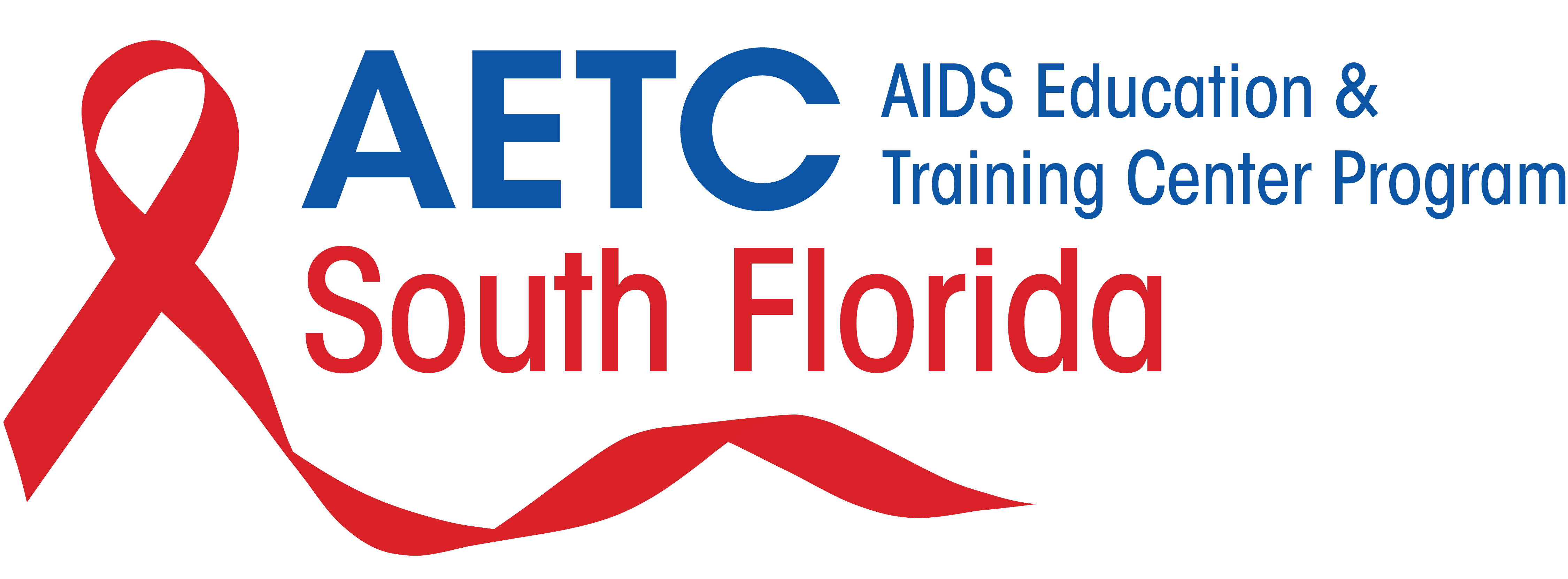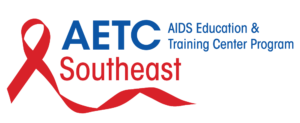
HIV Prevention During a Pandemic: Adapting to a New Normal – Provider Resources for Routine HIV Testing
The Centers for Disease Control and Prevention (CDC) estimates that there are approximately 1.2 million people with HIV (PWH) in the United States (US). Approximately 13% (>160,000) of these individuals do not know they are living with HIV as they have not yet been tested. To increase early diagnoses and improve outcomes, the CDC recommends that everyone between the ages of 13 to 64 be tested for HIV at least once. Also, testing frequency should increase with an individual’s risk. As an example, for individuals considered to be at marginal risk for HIV, annual HIV testing is recommended. For sexually active gay, bisexual, and men who have sex with men (MSM), HIV testing every 3 to 6 months is suggested.
HIV risk is typically defined by a person’s sexual network and individual behaviors, e.g., engaging in unprotected sex and substance use. However, research suggests that structural factors and geography can also influence HIV risk. More than 50% of new HIV infections occur within certain geographic hotspots, many of which are found in the southeastern United States. Florida is home to several of these hotspots and has consistently ranked among the top 10 states with the highest rates of new HIV infections since 2015.
In 2019, the “Ending the HIV Epidemic (EHE)” initiative was launched. This national plan to reduce the number of new HIV infections in the US by 90% by 2030. The first phase of the EHE is focused on priority areas where there is a disproportionate occurrence of HIV. Strategies outlined in the EHE initiative include four components: diagnose, treat, prevent, and respond. These components align well with strategies outlined in a previous initiative that was developed by the Florida Department of Health, in 2017, to eliminate new HIV transmissions in the state. Both strategies strongly encourage routine HIV testing in health care settings.
Florida laws have been adapted to facilitate increased HIV testing. In Florida, individuals who are younger than 18 but who are at least 13 years of age do not need parental consent to obtain an HIV test. Also, Florida law does not require written informed consent for HIV testing in health care settings with prior notification (section 381.004, Florida Statutes). Authorized facilities can test any patient who does not explicitly opt-out of testing for HIV. Florida legislation describes facilities that are authorized to implement the “opt-out” strategy as any hospital, urgent care clinic, substance abuse treatment center, primary care clinic, community clinic, blood bank, mobile medical clinic, or correctional health care facility.
Widespread uptake of CDC recommendations for HIV testing can increase the number of individuals who are aware of their HIV status and facilitate early detection of HIV. Additionally, it creates opportunities to introduce prevention strategies, such as Pre-Exposure Prophylaxis (PrEP), to individuals who test negative but are at risk for contracting HIV. These are considered as critical factors in ending the HIV epidemic in the US.
Early detection of HIV, immediate linkage to HIV care, and initiation of antiretroviral treatment (ART) is associated with viral suppression. Adherence to ART reduces the amount of virus in a person’s body (viral load – HIV RNA) to a level (<200 copies/mL) that cannot be detected by most lab tests. Individuals who are virally suppressed or undetectable have effectively no risk of transmitting HIV to others and are far less likely to experience HIV-related morbidity and mortality compared to individuals with a detectable viral load. Routine HIV testing leads to early detection. As such, it can promote improved individual and community health outcomes.
HIV testing is the first step in the consideration of pre-exposure prophylaxis (PrEP) for those who are HIV negative but have increased risk of acquiring infection. When a client receives a negative HIV test result, it is important to evaluate appropriateness for and interest in available prevention strategies, such as PrEP. This begins with an open discussion of sexual practices and other risk behaviors. For those with increased risk of HIV, a risk reduction plan should be considered. Strategies in such a plan may include routine retesting for HIV and other sexually transmitted infections (STIs), condom use, and PrEP.
Many traditional HIV testing services have been interrupted because of the on-going COVID-19 pandemic. This has resulted in new challenges for HIV prevention in Florida and throughout the US. These challenges require unique and innovative approaches to enable continued HIV testing while maintaining new health norms. To maintain the health and safety of patients and healthcare professionals while continuing to provide the essential health service of routine HIV testing and PrEP care, the use of telehealth, home specimen collection kits for STI testing, and HIV self-test kits, are encouraged when laboratory testing services are not available.
Self-administered at-home HIV testing options are available to patients. Providers are encouraged to provide patients with the option of having a self-test kit mailed to their home, and to provide education and linkage to care if a test kit returns a positive result. Many payors will cover the cost of these kits. The Florida Department of Health provides free at home testing kits to Florida residents who are seeking an HIV test. Test kits can be ordered at https://knowyourhivstatus.com/get-a-free-home-testing-kit/.
Clients can also contact their local health department for information on how to request kits as well as HIV counseling and prevention services.
Florida HIV Testing Law Basics
Prevention counseling is not required before HIV testing in health care settings. Clients must be notified that HIV testing is planned and have the opportunity to opt-out of testing. This notification may occur in a few ways including verbally or by the distribution of written materials. A facility may include a notification of HIV testing in general consent to medical treatment. If testing is declined, this decision should be documented, and providers are encouraged to address the reasons for declining. Minors who are 13 years or older do not need parental consent to get an HIV test.
Why should you conduct routine HIV Testing?
From a provider’s perspective, the testing laws remove time spent acquiring written consent, conducting prevention counseling, and conducting HIV risk assessments. HIV can be reliably detected with rapid tests, which are inexpensive, and noninvasive. Testing can also be incorporated into routine blood work planned as part of a health care visit. Although not required, HIV counseling and risk assessment are billable actions during an office visit, and thus can be a source of revenue. Under the Affordable Care Act (ACA), Medicare, Medicaid, and private insurance are required to cover or incentivize “A” and “B” grade services. HIV screening has an “A” rating from the USPSTF and should be a covered service by Medicare, Medicaid, and ACA-qualified health plans. Although most HIV testing services will be covered, it is important to refer to each individual health plan to verify reimbursement coverage.
Who should be tested for HIV?
The CDC recommends that everyone between the ages of 13 and 64 is tested for HIV at least once in their lifetime. This recommendation is similar to screening guidelines for other treatable conditions. However, the frequency of testing should increase with level of risk. For those at higher or ongoing risk for HIV, testing should be repeated at least annually. More frequent testing may be indicated for some individuals at highest risk.
Patients who have increased or ongoing risk for HIV include:
- Sexual partners of people living with HIV
- Those starting a new sexual relationship
- Those with recent sexually transmitted infections
- Those with multiple sexual partners
- Those who report inconsistent condom use
It is important to remember that although there is no cure, HIV is a manageable infection. Current medicines are extremely effective and help people live longer healthier lives.
What is PrEP and Where is it Available?
Pre-exposure prophylaxis (PrEP) is when people who do not have HIV and are at substantial risk of acquiring infection take medication to prevent HIV. PrEP can decrease risk of sexually acquired HIV infection by more than 99% when taken as directed. PrEP, in combination with HIV testing, testing for sexually transmitted infections, and provision of condoms, should be discussed with all people who are at increased risk for HIV infection after receipt of a negative HIV test.
Currently, there are three FDA-approved medications for PrEP: two single tablet combinations of two antiretroviral medications (tenofovir and emtricitabine) with the brand names Truvada® and Descovy®, as well as a generic formulation. Descovy® is not currently recommended for individuals who have receptive vaginal sex and are at risk of HIV. A new injectable medication for PrEP, Cabotegravir (CAB) was recently FDA-approved as a bimonthly intramuscular injection for sexually active men, women, and people of trans experience with indications for PrEP. Provision of PrEP requires baseline testing for HIV, sexually transmitted infections, viral hepatitis, and monitoring of serum creatinine (for some formulations). PrEP can be provided through primary care settings, sexually transmitted infection clinics, family planning clinics, and other venues.
Who should take PrEP?
CDC guidelines suggest that PrEP be discussed with individuals who are HIV-negative and are at an increased risk of infection from sex or injection drug use. Federal guidelines recommend that PrEP is considered for people who are HIV negative and who are:
- Sexual partners of people living with HIV
- Engaging in sex with multiple sexual partners
- Recent diagnosis of bacterial STI (gonorrhea, chlamydia, or syphilis)
- Exchanging sex for drugs money or other items
- Using condoms inconsistently
- Injection drug users who share injection equipment or have sexual risk for HIV
Our program is designed to increase information and provide resources to Florida providers regarding HIV prevention. For more information regarding our services and for testing & PrEP resources for your practice, please contact us at 305-243-2584 or [email protected]
Resources
Resources are listed below for additional information regarding implementation of HIV testing in health care settings, PrEP programs, linkage to HIV care, and billing for reimbursement for HIV testing and prevention.
- Florida Department of Health’s resource for HIV testing and prevention. https://www.testmiami.org/
- Centers for Disease Control and Prevention. Revised recommendations for HIV testing of adults, adolescents, and pregnant women in health-care settings. MMWR. September 2006;55(RR-14); 1-17. https://www.cdc.gov/mmwe/preview/mmwrhtml/rr5514a1.htm
- U.S. Preventive Services Task Force. Screening for HIV- Current Recommendations 201.9 https://uspreventiveservicestaskforce.org/uspstf/recommendation/human-immunodeficiency-virus-hiv-infection-screening
- Centers for Disease Control and Prevention. PREEXPOSURE PROPHYLAXIS FOR THE PREVENTION OF HIV INFECTION IN THE UNITED STATES – 2021 UPDATE https://www.cdc.gov/hiv/pdf/risk/prep/cdc-hiv-prep-guidelines-2021.pdf
- University of Miami. A Provider’s Guide to Reimbursement and sustainability for routine HIV Testing and HIV prevention in Florida healthcare facilities. 2020 http://www.floridahealth.gov/diseases-and-conditions/aids/prevention/_documents/um-eti/um-provider-guidance.pdf
- World Health Organization. Dr Gottfried Hirnschall. Striving for zero discrimination in health care. March 2016. http://www.who.int/mediacentre/commentaries/zero-discrimination-day/en/
- 2-1-1 Big Bend. Florida HIV/AIDS Hotline. http://www.211bigbend.org/flhivaidshotline.
- Health Resources and Services Administration. Get HIV Care and Treatment. https://hab.hrsa.gov/get-care/get-hiv-care Accessed December 2021
- Florida Department of Health. AIDS Prevention. http://www.floridahealth. gov/%5C/diseas-es-and-conditions/aids/prevention/index.html
- Florida Department of Health. PrEP Plan of Action Toolkit. http://www.floridahealth.gov/ diseases-and-conditions/aids/prevention/_documents/PrEP-toolkit.pdf Updated March 2016.
- Gilead Sciences, Inc. Why DESCOVY FOR PrEP® (pre-expo-sure prophylaxis)?. https://www.descovyhcp.com/about-descovy-for-prep#
- Florida Department of Health. Testing and Counseling. http://www.floridahealth.gov/ diseases-and-conditions/aids/prevention/testing-counseling.html
- Health Resources and Services Administration. Test and Treat: A New Paradigm for Slowing the Spread of HIV. https://hab.hrsa.gov/sites/default/files/hab/Publications/careactionnewsletter/hab_test_and_treat_january_careaction_pdf.pdf
